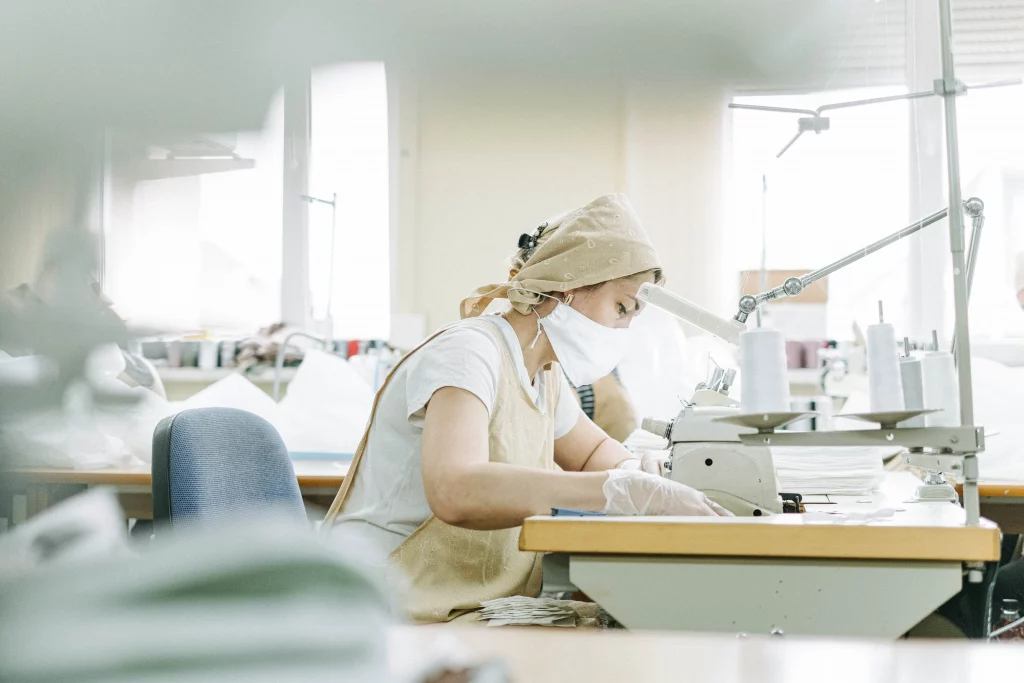Coronavirus World’s Supply Chain disruption & How to Respond
Coronavirus disruption to the world’s supply chain is unprecedented, it has affected so far all industries and services across all continents.
Experts are comparing the Coronavirus outbreak to the SARS outbreak in 2003, but the implications this time are more severe. China’s larger role in the global economy compared to 17 years ago is affecting more than just a few niche regions.

So far, major airlines have cancelled flights to China, while customs agents are cracking down on goods entering the U.S. It’s estimated that the areas accounting for 69% of China’s GDP will be halted for more than a week after the Lunar New Year, which will leave factories idle, shipped docked at port, and household spending at a record low — effects that are expected to spill over into countries who rely on Chinese companies as part of their supply chain.
5 Ways Coronavirus Impacts the Global Economy

Share of all imports of intermediate manufactured products coming from China in 2015
China accounts for about 17% of global GDP. It is $2.7 trillion in exports and has earned it the title of the manufacturing center of the world. But when critical provinces like production-powerhouse Wuhan are suddenly shut down, locals aren’t the only ones who pay the price.
Coronavirus is creating disruptions to companies around the world in the following ways:
Labor
With more than 40,000 people in China being infected with Coronavirus and 60 million people under quarantine, there are far fewer workers to operate factories to keep production going. As a result, production schedules fall behind, or in some cases, are non-existent for the time being.
Materials
Fewer workers mean fewer materials being produced and transported, which can cause bottlenecks in production. Supply shortages will be more prevalent in China’s most impacted areas.
Logistics
Travel restrictions are abundant in China right now, both on a local and international level. Because of lower labor availability, established logistics providers and hubs may experience limitations in capacity and availability. Supplies and materials that aren’t experiencing a shortage may be delayed in arriving at their destination.
Sourcing
Due to travel restrictions, businesses may be limited to finding new sourcing partners that can fill in the gaps if their current suppliers are unable to accommodate them.
Customers
Quarantines, travel restrictions, and labor limitations are expected to reduce household spending. In addition, consumers around the world may be more mindful about the products they purchase, both in-store and online, to limit their potential exposure to the virus.
Best Practices for Mitigating the Coronavirus Effect in the Future
Though hindsight is 20/20, companies should recognize the opportunity to mitigate future risk of contamination issues in the supply chain so that businesses can continue thriving, even in catastrophic situations like Coronavirus.
Diversify Suppliers
Similar to the phrase “Don’t put all your eggs in one basket,” companies shouldn’t put their business in the hands of a single supplier. Though you may have one or two core sources for specific items, it’s prudent to make additional partnerships that can fill in the gaps when your first choice can’t deliver.
An effective way to diversify your supply strategy is to conduct a Supplier Verification Audit, which checks each supplier against internationally recognized standards. Those who pass the audit operate at the highest level of standards and give you deeper insight into their legal, operational, and functional components.
As a result, you can create confident partnerships with suppliers that will be able to provide ongoing sourcing with a high caliber of service.
Conduct Pre-Shipment Inspections
During situations like Coronavirus, it’s more important than ever to recognize how supply chain inefficiencies can impact your bottom line. Companies should use this as an opportunity to identify potential bottlenecks that could heighten the effects of disasters.
One solution is to conduct pre-shipment inspections that can avoid potential hang-ups due to not meeting regulatory requirements. Companies who run into last-minute regulatory issues may experience costly delays and reworks, creating a negative ripple effect through the rest of your supply chain. Also, ensuring that products meet regulatory requirements before being shipped can help you avoid fines imposed by governing agencies.
Pre-shipment inspections should be considered an essential part of the quality control process. The earlier you can find issues in inconsistencies in your supply chain, the better you can mitigate their effects on timeliness and financial impact.
Develop a Strategic Control Partnership
Companies can rely on global partners to perform pre-shipment inspections and other quality control measures on their behalf.
As one of the leading third party inspection companies, Tetra Inspection helps brands, retailers, and international importers to inspect their products at the source to ensure compliance with regulatory and quality requirements.
When bottlenecks in the supply chain occur at the top, such as the current predicament with Coronavirus, companies must be able to fluidly shift to alternative sources and eliminate as much of their margin of error as possible. Being prepared gives you an automatic competitive advantage during critical times, and starting now will enable you to be better prepared for the next disaster.
Develop a Strategic Control Partnership
so Customized Quality control services. The boy liked birds, but he was afraid of cats. Similarly, he did not like lions and tigers. Jonas promised to love, honor, and also obey his wife. Moreover, he will do all the cooking and cleaning while he studies at home. Furthermore, he is grateful that his new wife earns enough money to pay the bills. Harry ate six shrimp at dinner. Beautiful giraffes roam the savannah. Sue changed the flat tire. We are going to watch a movie tonight. I will clean the house every Saturday. so, Tom painted the entire house. The teacher always answers the students’ questions.
Harry ate six shrimp at dinner. Beautiful giraffes roam the savannah. Sue changed the flat tire. We are going to watch a movie tonight. Mom read the novel in one day. I will clean the house every Saturday. Tom painted the entire house. The wedding planner is making all the reservations. The director will give you instructions. Ali is fat. saim is slim. Tahir is clever. Mom cooks food. I do Amazon FBA Inspection. Ali is bad. I go to school. Finally, I left my job. Eventually, I have passed the test. life is easy. And he does it. So he plays cricket.


